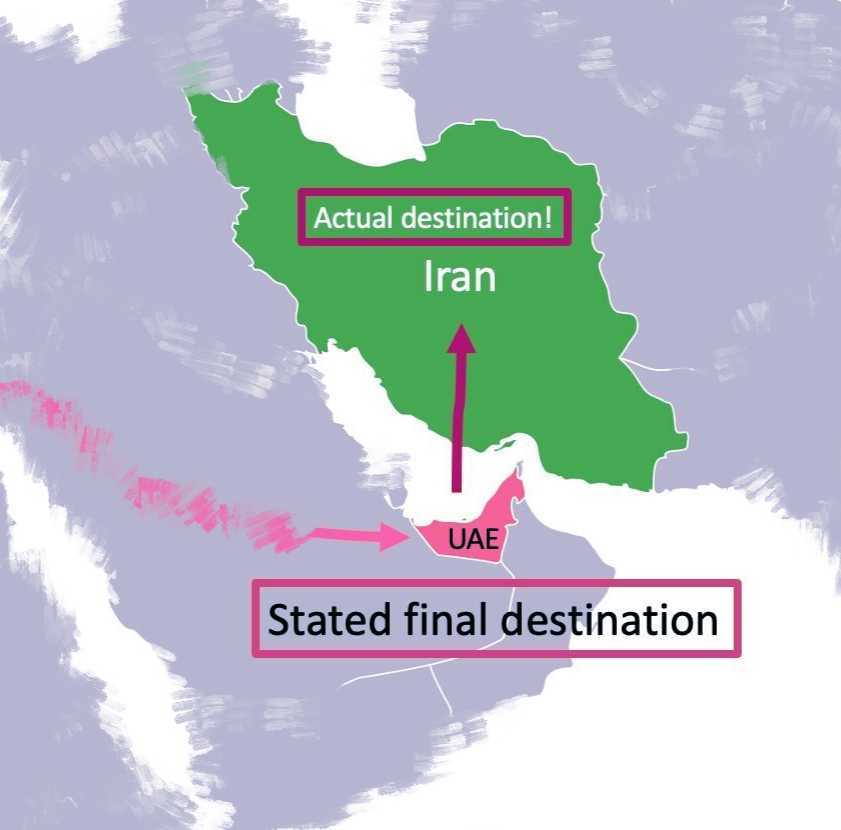Sanctions compliance gets complicated when shipping to grey-listed UAE
An American man was convicted of falsifying export documents to conceal the fact that shipments of US commodities through the United Arab Emirates was actually bound for the Islamic Republic of Iran, in serious violations of US sanctions.
The crime occurred when the man lied to the freight forwarder, claiming the ultimate destination of the goods was the UAE, despite their being a co-conspirator in Iran who was the true recipient of the goods.
“Hajavi chose to leverage his Florida business to illegally export materials to Iran rather than to lawfully contribute to the U.S. economy,” said U.S. Attorney Ryan K. Buchanan. “The US trade sanctions against Iran exist to help keep our country and citizens safe. Those who seek to profit by evading these prohibitions will be held accountable.”
Hajavi, through his company JSH Heavy Equipment, LLC, conspired with an individual in Iran to export US heavy machinery indirectly to Iran without first obtaining the required OFAC licences.
Hajavi purchased the items from US sellers and used freight forwarding companies to ship the heavy equipment from the US to the UAE Hajavi falsely claimed that the items were destined for his UAE customers, which typically were general trading companies located in free trade zones in the UAE But in truth, Hajavi intended for his Iranian co-conspirator to transship those items from the UAE to Iran in circumvention of the US export licensing requirement.
Utilising this scheme, Hajavi purchased an Ingersoll Rand blasthole drill from a US company. The drill is a type of heavy machinery used to create holes in the ground that are usually then filled with controlled charges. In a sham transaction, Hajavi sold the drill to a UAE company that, in turn, provided the drill to Hajavi’s Iranian co-conspirator, who shipped the tool to Iran.
This is a vital case for all businesses involved with import / export to the UAE. The country is grey-listed by the FATF due to money laundering deficiencies, which also contribute to the potential for sanctions breaches. This means regulated entities must apply enhanced due diligence measures and enhanced ongoing monitoring to any business relationship with a person established in a high-risk third country like the UAE.
The global laundromat between Russia and the UAE
With tightening sanctions on Russia, oligarchs and members of the sanctioned regime are seeking ways to get their money and assets out of Russia and into ‘safer’ investments such as property in Dubai. Grey listing the UAE, while not directly related to Russian sanctions, does make it more difficult for sanctioned Russians to hide cash there.
The use of sanctioned money is by definition a money laundering offence. For example, an estate agency that helps a sanctioned individual purchase a property commits a money laundering offence, as well as a sanctions breach, by enabling a transaction of seized or frozen assets, or enriching an individual who is under international sanctions.
Firms operating with customers from the UAE should pay close attention to ultimate beneficial owners and the source of funds. A sanctioned individual may attempt to conceal their identity through shell companies or by having friends or family members conduct the transactions on their behalf. This is also a breach of sanctions as family members or known associates are normally covered by sanctions regimes. With the UAE now being a high-risk jurisdiction alongside the additional risk of sanctions, significant extra care should be taken when dealing with these matters.








